Abstract
The origin of the lactam oxygen atoms of phycocyanobilin from Cyanidium caldarium was studied using 18O labelling. By inhibiting photosynthesis, a high 18O enrichment was maintained in the gas phase and the resulting incorporation of label showed that the lactam oxygen atoms were derived from two oxygen molecules. Slow exchange of these oxygen atoms with water was demonstrated directly by using H218O.
Full text
PDF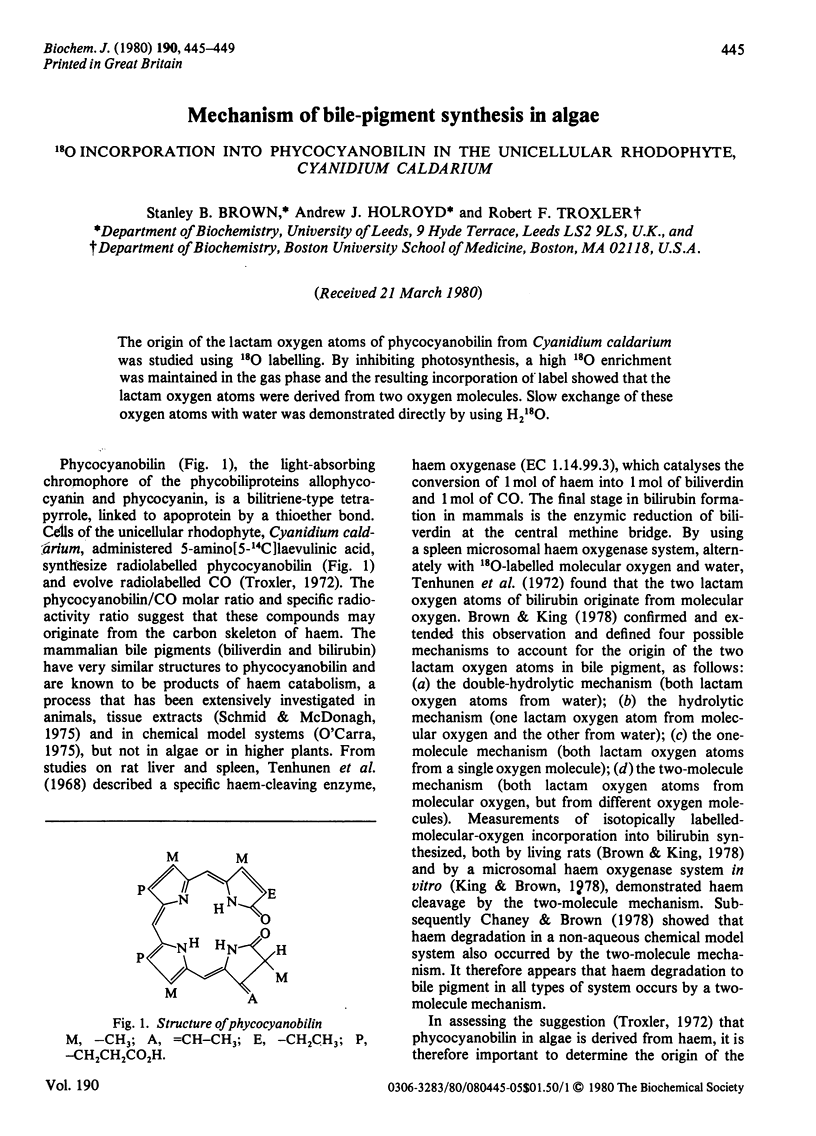
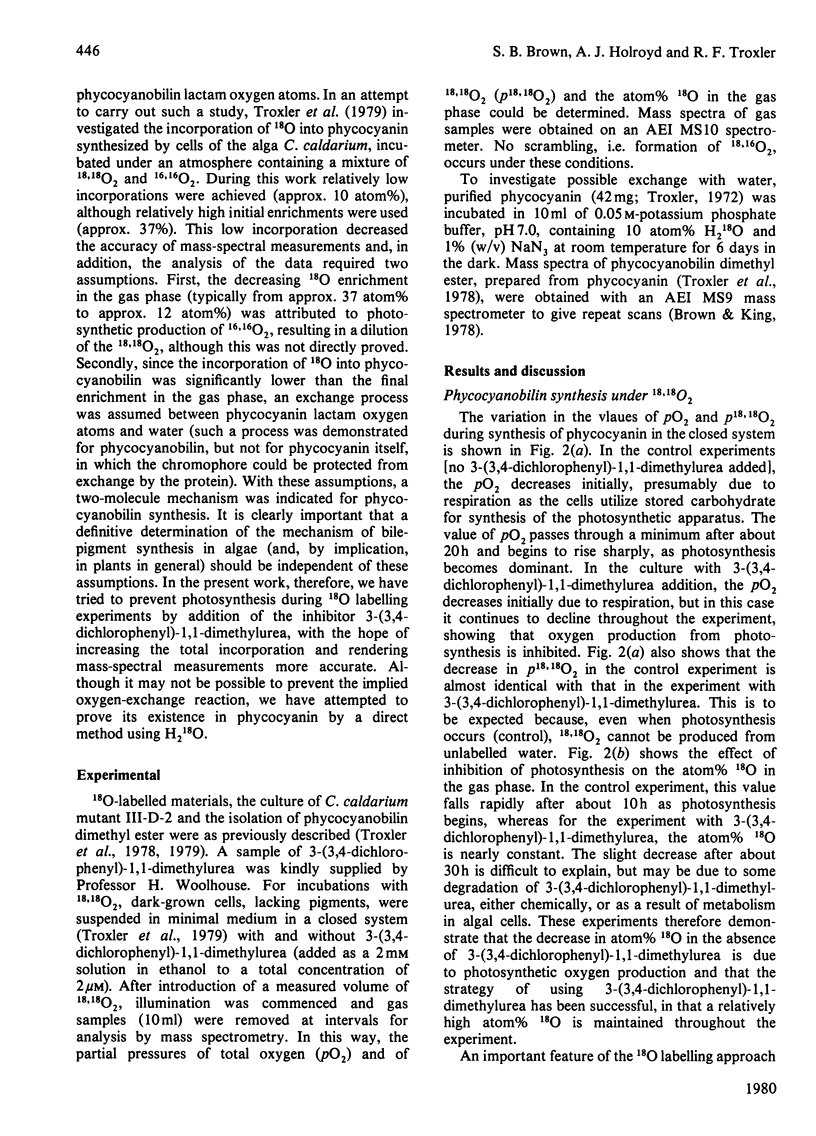
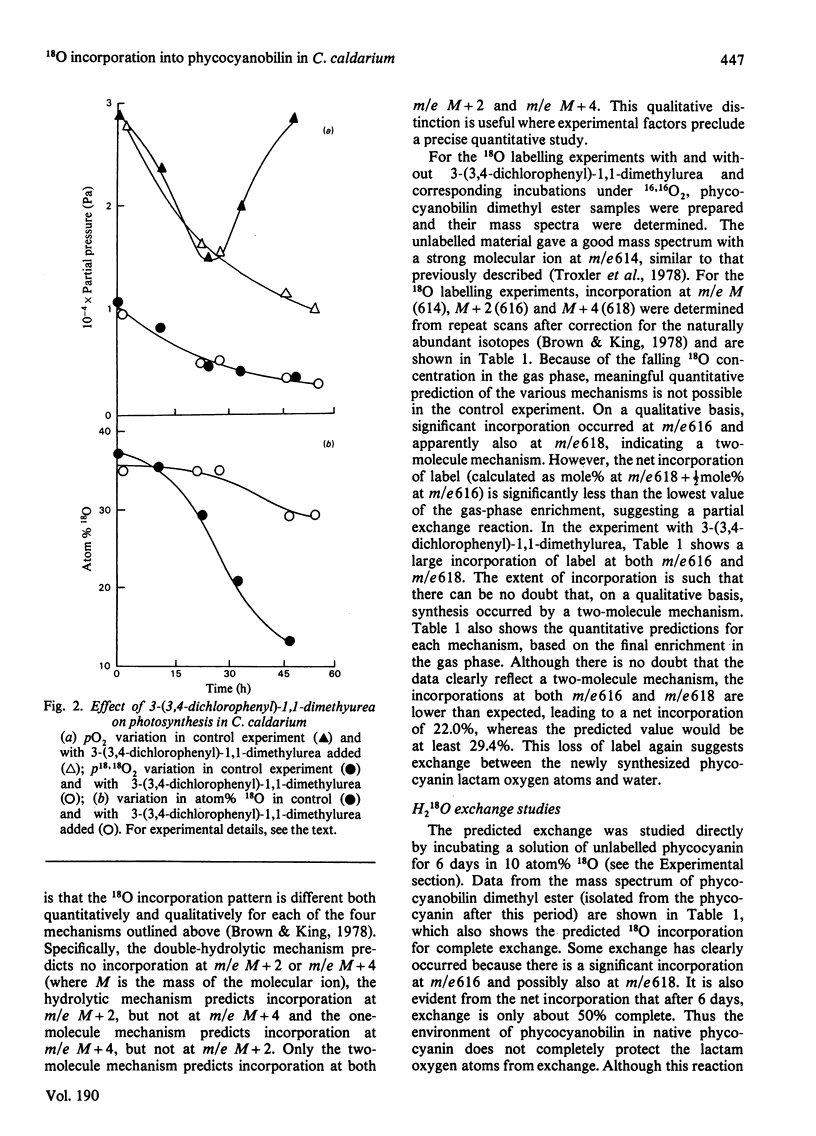
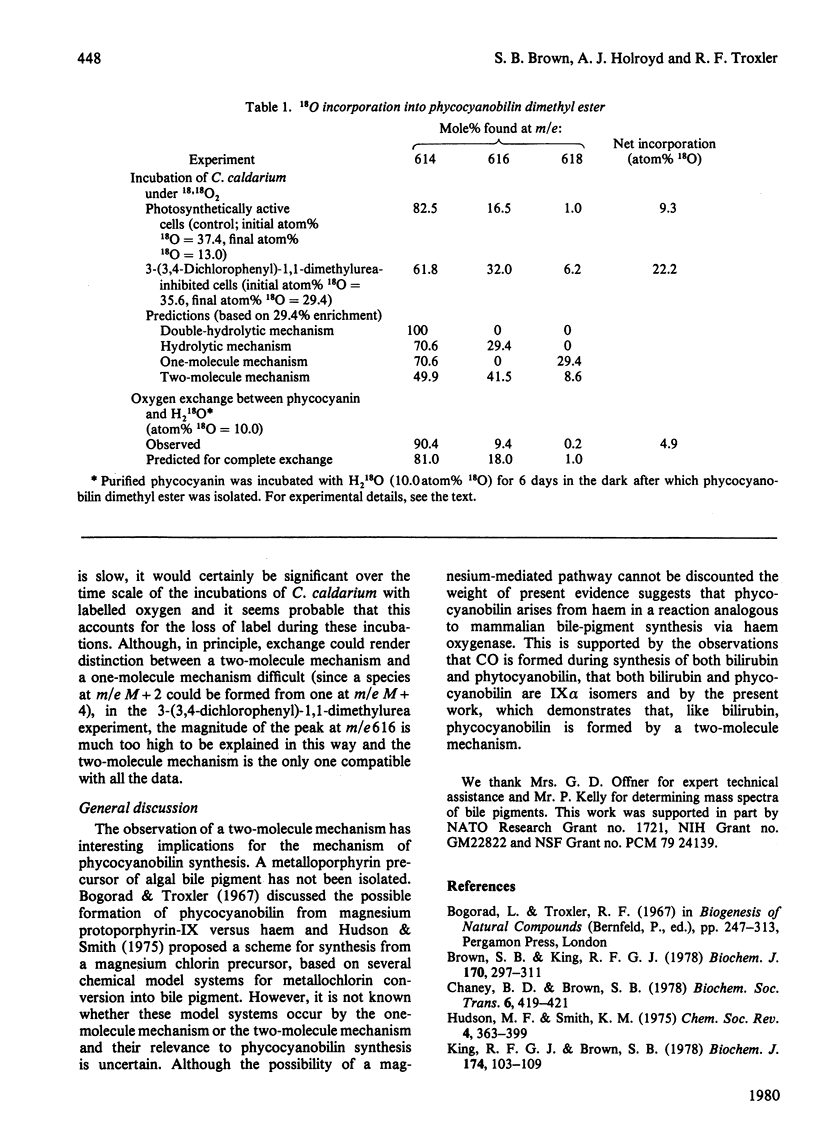
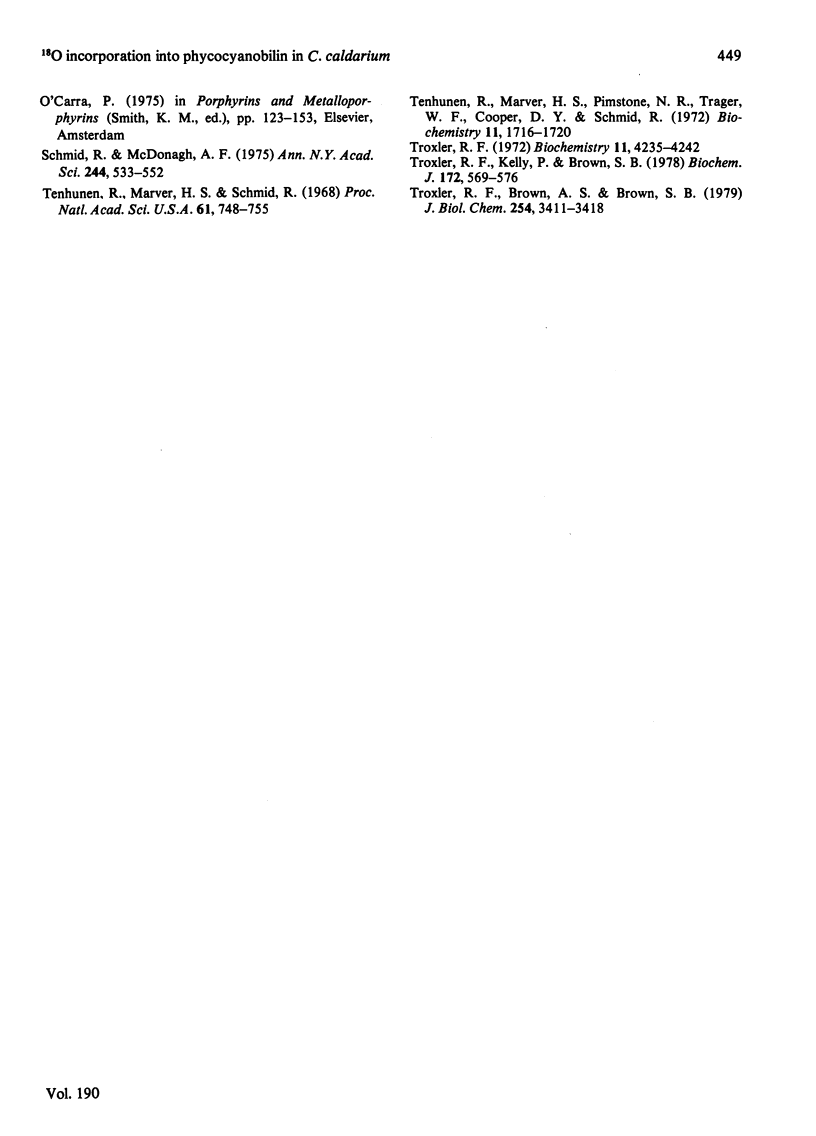
Selected References
These references are in PubMed. This may not be the complete list of references from this article.
- Brown S. B., King R. F. The mechanism of haem catabolism. Bilirubin formation in living rats by [18O]oxygen labelling. Biochem J. 1978 Feb 15;170(2):297–311. doi: 10.1042/bj1700297. [DOI] [PMC free article] [PubMed] [Google Scholar]
- Chaney B. D., Brown S. B. The mechanism of coupled oxidation of octaethylhaem to octaethylbiliverdin [proceedings]. Biochem Soc Trans. 1978;6(2):419–421. doi: 10.1042/bst0060419. [DOI] [PubMed] [Google Scholar]
- King R. F., Brown S. B. The mechanism of haem catabolism. A study of haem breakdown in spleen microsomal fraction and in a model system by 18O labelling and metal substitution. Biochem J. 1978 Jul 15;174(1):103–109. doi: 10.1042/bj1740103. [DOI] [PMC free article] [PubMed] [Google Scholar]
- Schmid R., McDonagh A. F. The enzymatic formation of bilirubin. Ann N Y Acad Sci. 1975 Apr 15;244:533–552. doi: 10.1111/j.1749-6632.1975.tb41553.x. [DOI] [PubMed] [Google Scholar]
- Tenhunen R., Marver H. S., Schmid R. The enzymatic conversion of heme to bilirubin by microsomal heme oxygenase. Proc Natl Acad Sci U S A. 1968 Oct;61(2):748–755. doi: 10.1073/pnas.61.2.748. [DOI] [PMC free article] [PubMed] [Google Scholar]
- Tenhunen R., Marver H., Pimstone N. R., Trager W. F., Cooper D. Y., Schmid R. Enzymatic degradation of heme. Oxygenative cleavage requiring cytochrome P-450. Biochemistry. 1972 Apr 25;11(9):1716–1720. doi: 10.1021/bi00759a029. [DOI] [PubMed] [Google Scholar]
- Troxler R. F., Brown A. S., Brown S. B. Bile pigment synthesis in plants. Mechanism of 18O incorporation into phycocyanobilin in the unicellular rhodophyte. Cyanidium caldarium. J Biol Chem. 1979 May 10;254(9):3411–3418. [PubMed] [Google Scholar]
- Troxler R. F., Kelly P., Brown S. B. Phycocyanobilin synthesis in the unicellular rhodophyte Cyanidium caldarium. Biochem J. 1978 Jun 15;172(3):569–576. doi: 10.1042/bj1720569. [DOI] [PMC free article] [PubMed] [Google Scholar]
- Troxler R. F. Synthesis of bile pigments in plants. Formation of carbon monoxide and phycocyanobilin in wild-type and mutant strains of the alga, Cyanidium caldarium. Biochemistry. 1972 Nov 7;11(23):4235–4242. doi: 10.1021/bi00773a007. [DOI] [PubMed] [Google Scholar]


